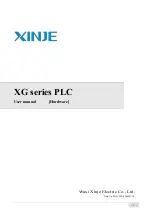
2-525
Cisco Catalyst Blade Switch 3030 Command Reference
78-17262-01
Chapter 2 Cisco
Catalyst
Blade Switch 3030 Cisco IOS Commands
trust
trust
Use the
trust
policy-map class configuration command to define a trust state for traffic classified
through the
class
policy-map configuration or the
class-map
global configuration command. Use the
no
form of this command to return to the default setting.
trust
[
cos
|
dscp
|
ip-precedence
]
no trust
[
cos
|
dscp
|
ip-precedence
]
Syntax Description
Defaults
The action is not trusted. If no keyword is specified when the command is entered, the default is
dscp
.
Command Modes
Policy-map class configuration
Command History
Usage Guidelines
Use this command to distinguish the quality of service (QoS) trust behavior for certain traffic from other
traffic. For example, incoming traffic with certain DSCP values can be trusted. You can configure a class
map to match and trust the DSCP values in the incoming traffic.
Trust values set with this command supersede trust values set with the
mls qos trust
interface
configuration command.
The
trust
command is mutually exclusive with
set
policy-map class configuration command within the
same policy map.
If you specify
trust cos
, QoS uses the received or default port CoS value and the CoS-to-DSCP map to
generate a DSCP value for the packet.
If you specify
trust dscp
, QoS uses the DSCP value from the ingress packet. For non-IP packets that are
tagged, QoS uses the received CoS value; for non-IP packets that are untagged, QoS uses the default port
CoS value. In either case, the DSCP value for the packet is derived from the CoS-to-DSCP map.
cos
(Optional) Classify an ingress packet by using the packet class of service (CoS)
value. For an untagged packet, the port default CoS value is used.
dscp
(Optional) Classify an ingress packet by using the packet Differentiated Services
Code Point (DSCP) values (most significant 6 bits of 8-bit service-type field). For
a non-IP packet, the packet CoS value is used if the packet is tagged. If the packet
is untagged, the default port CoS value is used to map CoS to DSCP.
ip-precedence
(Optional) Classify an ingress packet by using the packet IP-precedence value
(most significant 3 bits of 8-bit service-type field). For a non-IP packet, the packet
CoS value is used if the packet is tagged. If the packet is untagged, the port default
CoS value is used to map CoS to DSCP.
Release
Modification
12.2(25)SEE
This command was introduced.
















































